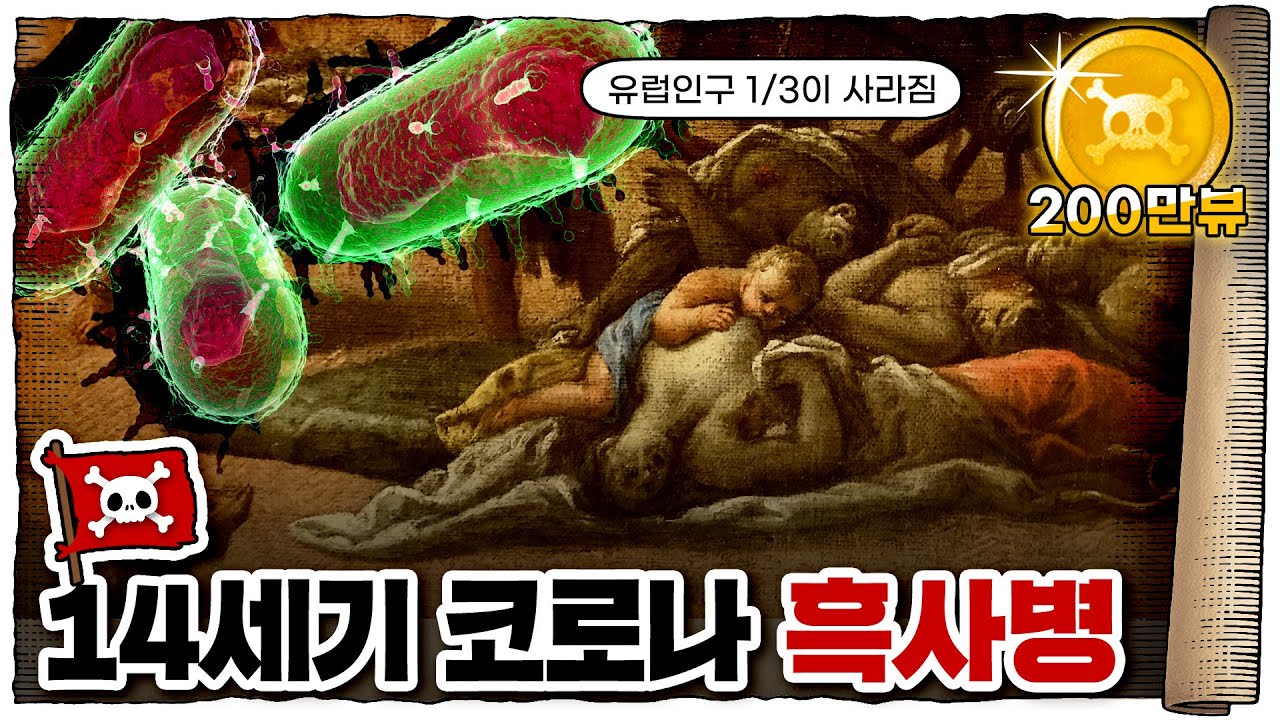The Black Death: Worst Pandemic in History Visualized
Summary
TLDRThis video explores the bubonic plague's profound impact on human history, tracing its origins in Central Asia to its devastating pandemics in the 6th and 14th centuries. It discusses how the plague, spread by fleas on rats, reshaped societies, economies, and political landscapes, leading to the decline of empires and the rise of new social structures like capitalism. The video also touches on the modern understanding of the disease and its ongoing, though less severe, presence.
Takeaways
- 😷 The bubonic plague, caused by the bacterium Yersinia pestis, has had a profound impact on human history, causing widespread death and societal changes.
- 🌏 The first pandemic of bubonic plague likely originated in Central Asia and spread globally, affecting the Byzantine Empire significantly in the 6th century A.D.
- 🚢 The plague was primarily spread through infected fleas on rats, which often traveled on ships, leading to the disease's rapid spread to new regions.
- 🏰 The disease had a devastating effect on the Byzantine Empire, leading to a long-term decline and the eventual rise of new empires and religions.
- 📉 The economic impact of the plague included a significant loss of workforce and tax revenue, which crippled the empire's ability to maintain its military campaigns and territories.
- 💀 The Black Death, a second wave of the bubonic plague in the 14th century, resulted in the deaths of an estimated 200 million people across Eurasia, which was about 42% of the world's population at the time.
- 🌾 The aftermath of the Black Death led to a rise in wages for common people, a decrease in land prices, and the beginning of the end for serfdom and feudalism in Europe.
- 🌟 The plague's impact on Europe set the stage for the rise of capitalism, as the labor shortage empowered peasants to demand better conditions.
- 🔬 The understanding of the disease's transmission through rats and fleas, along with the discovery of antibiotics, helped to reduce the plague's deadly impact on humanity.
- 📚 CuriosityStream offers documentaries that delve into the biological aspects of diseases like the bubonic plague and the ongoing coronavirus pandemic.
- 🎥 The CuriosityStream and Nebula bundle provides access to a wide range of non-fiction shows and documentaries, including those on significant historical events and scientific discoveries.
Q & A
What is the original plague that significantly changed the course of human history?
-The original plague that significantly changed the course of human history is the bubonic plague, caused by the bacterium Yersinia pestis.
Where is the bubonic plague believed to have originated?
-The bubonic plague is believed to have originated somewhere around the Tianchan Mountains in Central Asia.
How did the bubonic plague spread in the 6th century A.D.?
-The bubonic plague spread in the 6th century A.D. through infected fleas that lived on the backs of rats, which stowed away on ships and lived in close proximity to humans.
What was the impact of the bubonic plague on the Byzantine Empire?
-The bubonic plague had a devastating impact on the Byzantine Empire, leading to a significant population decline, economic mayhem, and the empire's long-term decline from which it never recovered.
How did the Black Death affect the social and economic structure of Europe?
-The Black Death led to the destruction of serfdom and feudalism, increased demand for laborers, higher wages for common people, and the decline in land prices, which contributed to the rise of capitalism.
What was the estimated death toll of the Black Death in Europe between 1347 and 1351?
-It is estimated that the Black Death caused the deaths of 60% of the population of the European continent, with some regions like Italy, France, and Spain experiencing up to 75% mortality.
How did the bubonic plague re-emerge in the world in 1347?
-The bubonic plague re-emerged in 1347 in Crimea, where the Republic of Genoa had a trading outpost called Kaffa, which was besieged by the Mongols. The plague was brought to Europe by merchants who unknowingly carried infected rats and fleas on their ships.
What was the death toll of the third bubonic plague pandemic that started in 1855 in China?
-The third bubonic plague pandemic, which started in 1855 in China, claimed the lives of 12 million people, mostly in India and China.
How did the discovery of the bacterium Yersinia pestis and the role of rats and fleas help in controlling the bubonic plague?
-The discovery of Yersinia pestis as the bacterium causing the disease and the understanding of rats and fleas as primary carriers allowed for better prevention and control measures, reducing the deadly impact of the bubonic plague.
How many recorded cases of the plague were there worldwide between 2010 and 2015?
-Between 2010 and 2015, there were 3,248 recorded cases of the plague across the world.
Outlines

This section is available to paid users only. Please upgrade to access this part.
Upgrade NowMindmap

This section is available to paid users only. Please upgrade to access this part.
Upgrade NowKeywords

This section is available to paid users only. Please upgrade to access this part.
Upgrade NowHighlights

This section is available to paid users only. Please upgrade to access this part.
Upgrade NowTranscripts

This section is available to paid users only. Please upgrade to access this part.
Upgrade Now5.0 / 5 (0 votes)





